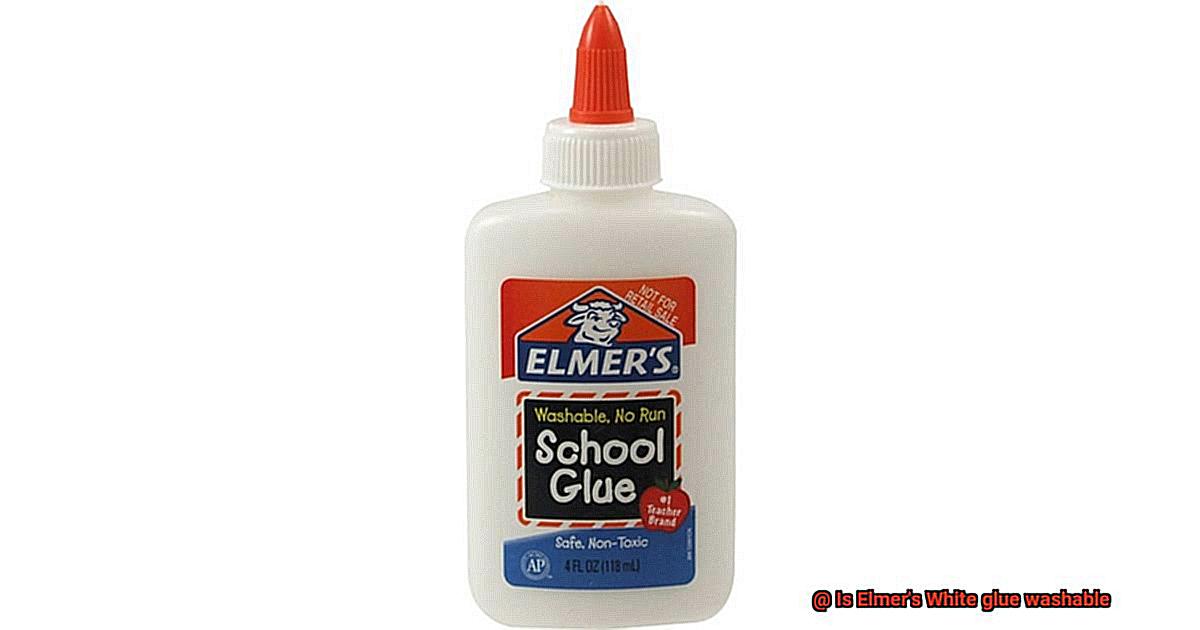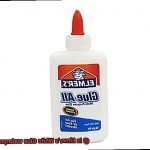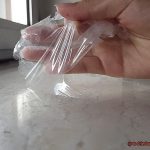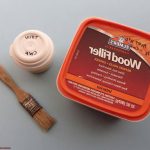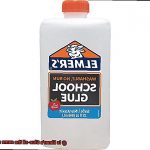Are you a craft enthusiast, a DIY guru, or a parent with kids who love to make art? If so, you’ve probably used Elmer’s White glue before. It’s been around since 1947 and has become a household name for its strong bonding power and easy-to-use squeeze bottle. But what about its washability?
We’ve all experienced the frustration of spilled glue and sticky messes that seem impossible to clean up. That’s why it’s essential to know if Elmer’s White glue is washable. And the good news is – it is. This versatile adhesive can be easily washed off with just water while it’s still wet, or soap and warm water once it dries.
Not only does Elmer’s White glue dry clear and work on various materials, but it’s also non-toxic, making it safe for children to use. And with its washability factor, parents can breathe a sigh of relief knowing that any accidental spills can be quickly cleaned up without leaving behind any residue.
So next time you’re working on a project with Elmer’s White glue, don’t fret about potential messes – just enjoy the creative process. With its reliable bonding power and easy clean-up, this glue will make your crafting experience hassle-free.
Is Elmer’s White Glue Washable?
Contents
The answer is a resounding yes. This popular adhesive is made from a water-based formula, making it easy to wash out of fabric, skin, and other surfaces.
However, before you start using Elmer’s White Glue in your crafting projects, it’s important to keep in mind that the washability of this glue may vary depending on the surface it is applied to and the type of stain it creates.
If you accidentally get glue on your clothes, don’t worry. Warm water and mild soap should do the trick. But if the glue has dried and formed a crusty layer, it may require some soaking and gentle scrubbing to remove completely.
When it comes to porous surfaces like wood or paper, removing Elmer’s White Glue may be more challenging. In such cases, using warm soapy water or a cleaning solution specifically designed for glue removal may be necessary.
While Elmer’s White Glue is indeed washable, washing the project after completion may compromise its integrity. This means that if you’re using the glue for a project that requires a strong and long-lasting bond, washing the project after completion may not be ideal.
How to Wash Away Elmer’s White Glue
In this blog post, we’ll explore five simple subtopics to help you effectively wash away Elmer’s White Glue without damaging your fabrics or surfaces.
Let it Dry
The first step in washing away Elmer’s White glue is to let it dry completely. This might seem counterintuitive, but trying to wash the glue while it’s still wet can actually make it spread and stick further. Once the glue has dried, gently scrape off any excess using a plastic scraper or butter knife. This will make it easier to remove the rest of the glue.
Soak in Cold Water
Next, soak the affected area in cold water for several minutes. This will help to soften the glue and make it easier to remove. After soaking, apply a small amount of liquid detergent directly onto the glue and rub gently with your fingers. Avoid using hot water or harsh scrubbing as this can damage the fabric. Instead, use a soft-bristled brush or cloth to gently scrub the area.
Rinse Thoroughly
Rinse the area thoroughly with cold water until all of the soap and glue have been removed. If there are still traces of glue left on the fabric, repeat the process until it comes off completely. It’s important to rinse thoroughly to ensure that all of the soap and glue have been removed.
Use Specialized Adhesive Remover
If the glue is particularly stubborn and won’t come off easily, you can also try using a specialized adhesive remover designed specifically for Elmer’s White Glue. Simply apply a small amount of the remover to the affected area and follow the instructions on the product. This will help break down the glue and make it easier to remove.
Be Cautious When Washing Delicate Fabrics
When washing delicate fabrics such as silk or wool, it is recommended to take them to a professional cleaner to avoid damage. If you must wash the fabric yourself, be sure to use cold water and a gentle detergent, and avoid scrubbing too hard or using any harsh chemicals. It’s always better to be cautious when dealing with delicate fabrics.
Potential Challenges with Washing Away Elmer’s White Glue
This versatile adhesive is a staple for all crafting enthusiasts, especially among children. However, there can be potential challenges when trying to wash away the glue from certain surfaces. As an expert, I’m here to explain the potential challenges with washing away Elmer’s White Glue.
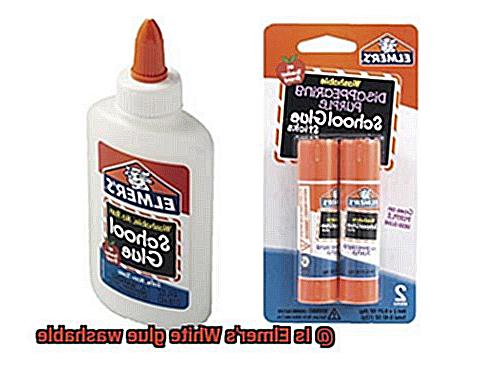
One of the main challenges is that it can become more difficult to remove once it dries. Imagine this – you leave a blob of glue on your favorite t-shirt and forget all about it. The glue then hardens and bonds tightly to the fabric. Now the challenge begins – how do you remove the glue without damaging the t-shirt or causing discomfort? This is where the potential challenge lies.
Another challenge is that it may not come out completely in one wash. Depending on the surface and amount of glue applied, multiple washes may be necessary to fully remove the adhesive. This can be particularly frustrating for parents or teachers who need to clean up after a messy craft project. But don’t worry, persistence is key.

Moreover, there may be certain surfaces that are not suitable for washing with water, such as delicate fabrics or electronics. In these cases, alternative methods such as using a dry cloth or adhesive remover may be necessary to remove any excess glue residue. It’s important to note that not all surfaces are created equal, and some may require special care.
Advantages of Using Elmer’s White Glue
If you’re on the hunt for a versatile, affordable, and safe adhesive, look no further than Elmer’s White Glue. As an expert in crafting and DIY, I can confidently say that this adhesive offers a range of advantages that make it a must-have for any project.
Firstly, Elmer’s White Glue is incredibly washable. If you accidentally spill or smear some glue on your clothes or other items, don’t fret. Simply wash it off with water and soap, and you’ll be good to go. This feature ensures that your projects are free from any unsightly residue or marks.
In addition to its washability, Elmer’s White Glue is also incredibly versatile. It can bond with a wide range of surfaces, including paper, cardboard, fabric, and wood. Whether you’re working on a scrapbook or repairing a piece of furniture, Elmer’s White Glue is up to the task.
Parents will appreciate that Elmer’s White Glue is non-toxic and safe for children to use. Plus, its clear drying formula means that there won’t be any unsightly marks on their artwork or school projects. And for those on a budget, Elmer’s White Glue is an affordable option that won’t break the bank.
Disadvantages of Using Elmer’s White Glue
While this adhesive has been a go-to choice for many, it’s important to be aware of its limitations and drawbacks.
One of the biggest disadvantages of using Elmer’s White Glue is its lack of water-resistance. While it can be easily cleaned up with water while still wet, once it dries, it becomes vulnerable to moisture and humidity. This makes it unsuitable for projects that may come in contact with water. Additionally, its slow drying time of up to 24 hours can be frustrating for those who want to complete their project quickly.
Another drawback of Elmer’s White Glue is its tendency to become brittle over time, especially if exposed to sunlight or fluctuating temperatures. This can cause the glue to crack and break apart, which can be problematic for long-term projects or items that are frequently handled.
Furthermore, Elmer’s White Glue may not be the best choice for certain materials or surfaces. It may not adhere well to slick or non-porous surfaces like glass or plastic and may not work well with some types of fabric or paper.
Alternatives to Elmer’s White Glue
While this classic adhesive is widely used and affordable, you may be looking for a stronger bond or an adhesive that works better on specific surfaces. Fear not. There are plenty of other options available that can cater to your crafting needs. Let’s explore some exciting alternatives:
First up is Aleene’s Original Tacky Glue. This glue is a quick-bonding solution that boasts a strong hold. Its clear finish makes it perfect for use on a variety of surfaces such as paper, fabric, and wood. Say goodbye to waiting around for the glue to dry.
For those seeking a heavy-duty adhesive, Gorilla Glue is the way to go. This powerful glue bonds almost any surface and becomes waterproof once dry. Perfect for outdoor projects or items that will be frequently handled.
E6000 Craft Adhesive is an industrial-strength glue best suited for heavy-duty projects requiring a strong and reliable bond that won’t budge. It can bond to metal, glass, ceramics, and more.
Mod Podge is a versatile adhesive sealer that can be used as a glue, sealer, and finisher. Its clear finish makes it perfect for decoupage projects, paper crafts, fabric, wood and more.
Last but not least is Super Glue, also known as cyanoacrylate glue. This fast-acting adhesive bonds quickly and dries clear. It’s perfect for small projects that require a quick bond and can bond to surfaces such as plastic, metal, and ceramics.
zumPCy2wuKg” >
Also Read: Is Elmer’s Glue Waterproof?
Conclusion
To sum it up, Elmer’s White glue is a trusted and versatile adhesive that has stood the test of time for over seven decades. What sets this glue apart from others is its washability feature, making it a breeze to tidy up any accidental spills or messes. Parents can breathe easy knowing that their children can safely use Elmer’s White Glue for their artistic endeavors, thanks to its non-toxic formula and transparent drying properties.
However, it’s worth noting that the washability of Elmer’s White Glue may vary depending on the surface it is applied to and the type of stain it creates. While washing off the project after completion may compromise its integrity, there are specific techniques to effectively remove this glue without harming fabrics or surfaces.
Despite its benefits, Elmer’s White Glue does have some limitations and drawbacks. It may not be suitable for water-resistant projects or certain materials like glass or plastic. In such cases, alternatives such as Aleene’s Original Tacky Glue or Gorilla Glue may be more appropriate.
All in all, whether you’re a crafting aficionado, DIY enthusiast, or parent with little ones who love creating art – Elmer’s White Glue should undoubtedly be a staple in your crafting arsenal.

